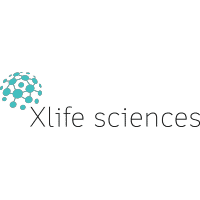预约演示
更新于:2025-05-24
Atrosimab
更新于:2025-05-24
概要
基本信息
原研机构 |
非在研机构- |
最高研发阶段临床1期 |
首次获批日期- |
最高研发阶段(中国)- |
特殊审评- |
登录后查看时间轴
结构/序列
Sequence Code 319240084H

Sequence Code 319240085L

关联
1
项与 Atrosimab 相关的临床试验NCT04650126
A Phase I, Randomized, Double-blind, Parallel Group and Placebo-controlled Study to Assess Safety, Tolerability, Pharmacokinetics and Pharmacodynamics of Atrosimab in Response to Single Ascending Intravenous Infusion Doses.
This is a double-blind, parallel group and placebo-controlled clinical study to assess safety tolerability, pharmacokinetics and pharmacodynamics of Atrosimab in healthy volunteers
开始日期2021-07-12 |
申办/合作机构 |
100 项与 Atrosimab 相关的临床结果
登录后查看更多信息
100 项与 Atrosimab 相关的转化医学
登录后查看更多信息
100 项与 Atrosimab 相关的专利(医药)
登录后查看更多信息
3
项与 Atrosimab 相关的文献(医药)2019-05-19·mAbs2区 · 医学
Improved monovalent TNF receptor 1-selective inhibitor with novel heterodimerizing Fc
2区 · 医学
Article
作者: Pfizenmaier, Klaus ; Seifert, Oliver ; Richter, Fabian ; Herrmann, Andreas ; Kontermann, Roland E.
The development of alternative therapeutic strategies to tumor necrosis factor (TNF)-blocking antibodies for the treatment of inflammatory diseases has generated increasing interest. In particular, selective inhibition of TNF receptor 1 (TNFR1) promises a more precise intervention, tackling only the pro-inflammatory responses mediated by TNF while leaving regenerative and pro-survival signals transduced by TNFR2 untouched. We recently generated a monovalent anti-TNFR1 antibody fragment (Fab 13.7) as an efficient inhibitor of TNFR1. To improve the pharmacokinetic properties of Fab 13.7, the variable domains of the heavy and light chains were fused to the N-termini of newly generated heterodimerizing Fc chains. This novel Fc heterodimerization technology, designated "Fc-one/kappa" (Fc1κ) is based on interspersed constant Ig domains substituting the CH3 domains of a γ1 Fc. The interspersed immunoglobulin (Ig) domains originate from the per se heterodimerizing constant CH1 and CLκ domains and contain sequence stretches of an IgG1 CH3 domain, destined to enable interaction with the neonatal Fc receptor, and thus promote extended serum half-life. The resulting monovalent Fv-Fc1κ fusion protein (Atrosimab) retained strong binding to TNFR1 as determined by enzyme-linked immunosorbent assay and quartz crystal microbalance, and potently inhibited TNF-induced activation of TNFR1. Atrosimab lacks agonistic activity for TNFR1 on its own and in the presence of anti-human IgG antibodies and displays clearly improved pharmacokinetic properties.
Scientific reports
The TNFR1 antagonist Atrosimab reduces neuronal loss, glial activation and memory deficits in an acute mouse model of neurodegeneration
Article
作者: Fischer, Roman ; Köpke, Karina ; Chen, Tingting ; Ebskamp, Amber ; Boerema, Ate S ; Pfizenmaier, Klaus ; Kontermann, Roland E ; Keijser, Jan ; Ortí-Casañ, Natalia ; Eisel, Ulrich L M ; Zhang, Yuequ ; Broersen, Kerensa ; Dolga, Amalia M
Abstract:
Tumor necrosis factor alpha (TNF-α) and its key role in modulating immune responses has been widely recognized as a therapeutic target for inflammatory and neurodegenerative diseases. Even though inhibition of TNF-α is beneficial for the treatment of certain inflammatory diseases, total neutralization of TNF-α largely failed in the treatment of neurodegenerative diseases. TNF-α exerts distinct functions depending on interaction with its two TNF receptors, whereby TNF receptor 1 (TNFR1) is associated with neuroinflammation and apoptosis and TNF receptor 2 (TNFR2) with neuroprotection and immune regulation. Here, we investigated the effect of administering the TNFR1-specific antagonist Atrosimab, as strategy to block TNFR1 signaling while maintaining TNFR2 signaling unaltered, in an acute mouse model for neurodegeneration. In this model, a NMDA-induced lesion that mimics various hallmarks of neurodegenerative diseases, such as memory loss and cell death, was created in the nucleus basalis magnocellularis and Atrosimab or control protein was administered centrally. We showed that Atrosimab attenuated cognitive impairments and reduced neuroinflammation and neuronal cell death. Our results demonstrate that Atrosimab is effective in ameliorating disease symptoms in an acute neurodegenerative mouse model. Altogether, our study indicates that Atrosimab may be a promising candidate for the development of a therapeutic strategy for the treatment of neurodegenerative diseases.
Frontiers in immunology2区 · 医学
The TNFR1 Antagonist Atrosimab Is Therapeutic in Mouse Models of Acute and Chronic Inflammation
2区 · 医学
ArticleOA
作者: John, Katharina ; Diem, Ricarda ; Herrmann, Andreas ; Vaslin, Camille ; Vogel, Arndt ; Herrmann, Stefanie ; Fischer, Roman ; Zanker, Henri ; Marhenke, Silke ; Dhaen, Marie-Ann ; Huber, Carina ; Kontermann, Roland E ; Williams, Sarah K ; Pichi, Kira ; Bantel, Heike ; Pfizenmaier, Klaus ; Richter, Fabian ; Fairless, Richard
Therapeutics that block tumor necrosis factor (TNF), and thus activation of TNF receptor 1 (TNFR1) and TNFR2, are clinically used to treat inflammatory diseases such as rheumatoid arthritis, inflammatory bowel disease and psoriasis. However, TNFR1 and TNFR2 work antithetically to balance immune responses involved in inflammatory diseases. In particular, TNFR1 promotes inflammation and tissue degeneration, whereas TNFR2 contributes to immune modulation and tissue regeneration. We, therefore, have developed the monovalent antagonistic anti-TNFR1 antibody derivative Atrosimab to selectively block TNFR1 signaling, while leaving TNFR2 signaling unaffected. Here, we describe that Atrosimab is highly stable at different storage temperatures and demonstrate its therapeutic efficacy in mouse models of acute and chronic inflammation, including experimental arthritis, non-alcoholic steatohepatitis (NASH) and experimental autoimmune encephalomyelitis (EAE). Our data support the hypothesis that it is sufficient to block TNFR1 signaling, while leaving immune modulatory and regenerative responses via TNFR2 intact, to induce therapeutic effects. Collectively, we demonstrate the therapeutic potential of the human TNFR1 antagonist Atrosimab for treatment of chronic inflammatory diseases.
100 项与 Atrosimab 相关的药物交易
登录后查看更多信息
研发状态
10 条进展最快的记录, 后查看更多信息
登录
| 适应症 | 最高研发状态 | 国家/地区 | 公司 | 日期 |
|---|---|---|---|---|
| 慢性肝病 | 临床1期 | 瑞士 | 2023-06-28 |
登录后查看更多信息
临床结果
临床结果
适应症
分期
评价
查看全部结果
| 研究 | 分期 | 人群特征 | 评价人数 | 分组 | 结果 | 评价 | 发布日期 |
|---|
No Data | |||||||
登录后查看更多信息
转化医学
使用我们的转化医学数据加速您的研究。
登录
或

药物交易
使用我们的药物交易数据加速您的研究。
登录
或

核心专利
使用我们的核心专利数据促进您的研究。
登录
或

临床分析
紧跟全球注册中心的最新临床试验。
登录
或

批准
利用最新的监管批准信息加速您的研究。
登录
或

生物类似药
生物类似药在不同国家/地区的竞争态势。请注意临床1/2期并入临床2期,临床2/3期并入临床3期
登录
或

特殊审评
只需点击几下即可了解关键药物信息。
登录
或

生物医药百科问答
全新生物医药AI Agent 覆盖科研全链路,让突破性发现快人一步
立即开始免费试用!
智慧芽新药情报库是智慧芽专为生命科学人士构建的基于AI的创新药情报平台,助您全方位提升您的研发与决策效率。
立即开始数据试用!
智慧芽新药库数据也通过智慧芽数据服务平台,以API或者数据包形式对外开放,助您更加充分利用智慧芽新药情报信息。
生物序列数据库
生物药研发创新
免费使用
化学结构数据库
小分子化药研发创新
免费使用

